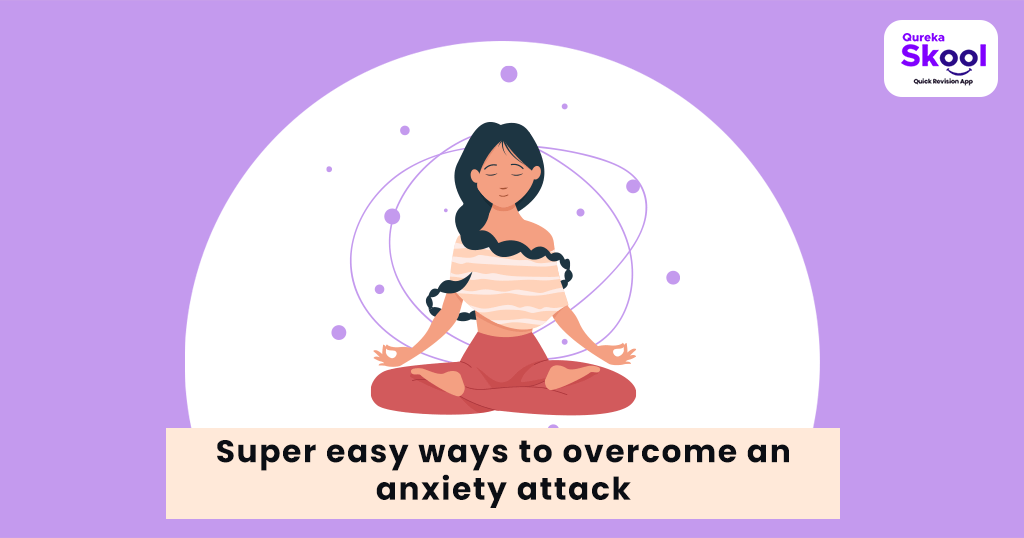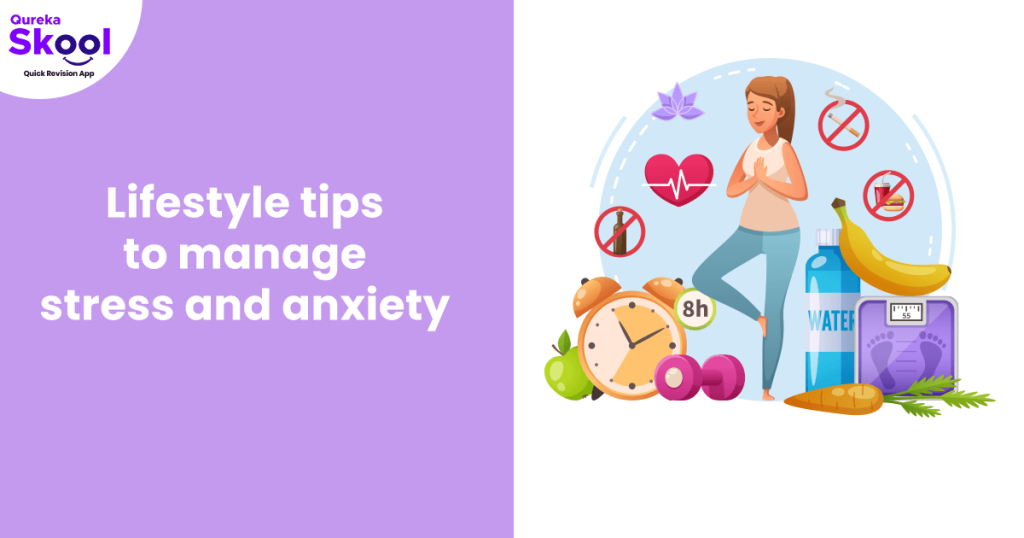
Anxiety attacks can feel like the end of the world. Sometimes our brain reacts to stress through anxiety. Your heart races, you can’t breathe, and you feel like you’re going to die. These physical symptoms are accompanied by a sense of dread and fear.
If you suffer from anxiety attacks, you know how debilitating they can be. But there is hope! In this blog post, we will explore some super easy ways to overcome anxiety attacks. From changing your diet to incorporating more exercise into your routine, these tips are sure to help you take back control of your life!
Table of Contents
What is an anxiety attack?
An anxiety attack, also called a panic attack, is a period of intense fear or apprehension that is accompanied by physical symptoms such as sweating, shaking, heart palpitations, and shortness of breath. These episodes can occur unexpectedly and may be triggered by a variety of things, such as stress, fear, or a traumatic event.
For some people, anxiety attacks are a one-time occurrence, while for others they may happen frequently. There is no particular definition of an anxiety attack. In this blog post, we will also clear the air around panic attacks and anxiety attacks.
While an anxiety attack can be very frightening, it is important to remember that it is not harmful and will not last forever. With proper treatment and self-care, it is possible to manage anxiety attacks and live a healthy and fulfilling life.
Anxiety attack symptoms and causes
Anxiety attacks can be terrifying. You may feel like you’re losing control, having a heart attack, or even dying. While the physical symptoms are real, the cause is usually mental. Anxiety is a normal emotion that helps us deal with stress and danger. It becomes a problem when it’s out of proportion to the situation or lasts longer than it should.
There are many different types of anxiety disorders, each with its own set of symptoms. But there are some common signs of an anxiety attack:
• Heart palpitations or chest pain
• Shortness of breath
• Sweating
• trembling or shaking
• Sensations of choking or smothering
• Nausea or stomach upset
• Feelings of dizziness, lightheadedness, or unsteadiness
• A sense of unreality (derealization) or fear of losing control
• Hot flashes or chills
Panic attack vs anxiety attack
There is a lot of confusion out there about the difference between a panic attack and an anxiety attack. Here are some key points to keep in mind:
-A panic attack is a sudden, intense episode of fear or anxiety that can include physical symptoms like chest pain, heart palpitations, shortness of breath, and dizziness.
-An anxiety attack is a prolonged period of worry or unease that can also include physical symptoms like fatigue, muscle tension, and insomnia.
-Both types of attacks can be debilitating and cause significant distress.
-There are effective treatments available for both conditions.
Anxiety tends to develop gradually, and a person is usually worried or concerned about the final result. It can vary in behavior, from mild to severe. But a panic attack can start without any prior warning or sign. A panic attack can even occur during sleep.
The duration of a panic attack is very different from an anxiety attack. A panic attack can last from 5 to 20 minutes while an anxiety attack is a prolonged process.
If you think you may be experiencing either a panic attack or an anxiety attack, it’s important to seek professional help to get an accurate diagnosis and develop an appropriate treatment plan.
How to calm an anxiety attack?
Anxiety can be a normal and even healthy emotion. But when it becomes overwhelming and causes panic, it can interfere with your daily life. An anxiety attack is a sudden episode of intense fear or discomfort that reaches a peak within minutes and often happens for no apparent reason.
If you’re having an anxiety attack, there are some things you can do to calm yourself down:
1) Breathe deeply and slowly. Inhale through your nose and exhale through your mouth.
2) Try to relax your muscles. progressive muscle relaxation techniques.
3) Visualize a peaceful place or situation. close your eyes and imagine yourself in a calm environment.
4) Reduce caffeine intake. Too much caffeine can worsen anxiety symptoms.
5) Don’t avoid situations that make you anxious. This will only make the anxiety worse in the long run. Instead, face your fears gradually and in small steps so that they don’t seem so daunting.
6) Perform meditation and yoga to calm the mind on a regular base. This will help the person stay in control during a panic attack. A breathing drill during a panic attack is very much important.
Read this easy-to-follow guide to stay calm during a panic attack!
Tips to include in your life to manage anxiety attacks

- Check out the reason for personal triggers
Sometimes a specific person, location, or memory triggers this type of reaction in a person. Identifying such factors can be a real game-changer.
- Eating a fresh and healthy diet
The mood of a human is very much dependent on the health of the body. A healthy body and mind support a calm ecosystem inside the mind. Also, fresh food requires some effort and gives a sense of achievement when it is cooked at home.
- Being more social
It is a well-known fact that a person who is a part of a good social circle or has people to talk to is more happy. Interacting with a different set of people at home or outside the home can make one feel his/her presence in the circle. This also leads to the easy acknowledgment of emotions and feelings.
- Setting up small goals to achieve the bigger ones
Small goals require planning. A person feels more confident about achieving the bigger goals when they have a proper plan. Anxiety often creeps in when a person feels worried or less confident. Planning is the best way to avoid such situations.
If you are a student then do read this article on self-confidence to overcome anxiety!
- Trying out new fun activities
Activities such as singing, dancing, cooking, driving, etc. can make a person feel more confident. While such activities are fun to learn and start, they also provide a sense of happiness to the learner. A happy soul is 100 miles away from anxiety and stress.
Check out fun quizzes on the Qureka Skool app now!
Some FAQs on anxiety attack
Q.1 Does the heart beat irregularly during a panic attack?
Yes, the heart is the most affected organ of the body during a panic attack.
Q.2 Can yoga help in easing out an anxiety attack?
Yes, regular practice of yoga can really help out a person who is suffering from anxiety or panic attacks.
Q.3 Does a person tremble or shiver during an anxiety attack?
Yes, shivering and trembling are among the common symptoms of an anxiety attack.
Do share your views on anxiety attacks in the comment section below. You can also stay in touch through our Insta and Facebook channels.
